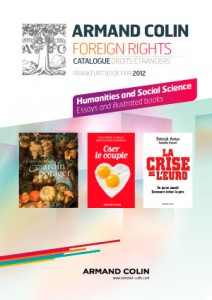News from JMS
Welcome to our blog, where we plan to feature news, views and translation clues. Things like: did you know that English cats say ‘meow’, German moggies ‘miau’, French felines ‘miaou’, and Spanish Siamese ‘miau’. Pause for thought…
Hay, rubarb!
Yes, I did drop the ‘h’ intentionally. It seems that David Crystal, professor of linguists at Bangor University, said in a talk at the Hay Festival that he thinks it is inevitable we will drop the ‘p’ from receipt, change the ‘c’ from necessary into a ‘s’ and drop the ‘h’ in rubarb (oops, rhubarb). Apparently, the ‘h’ was never included in Middle English.
Eck, it’s all canging.
Frankfurt book fair
There was a buzz in the air at the Frankfurt fair despite the difficulties faced by the industry. The German hall was as full as ever, with author interviews, wonderful stationery stands selling advent calendars and Christmas cards (way too early to buy), a cookery demonstration and a wine tasting to add to the mix of buying and selling rights and books. The French hall is always a haven of busy calm and the UK and American stands were doing brisk trade. The Chinese stands were particularly active and we met a number of publishers interested in having their books translated. And the sun shone for the first few days which made walking from hall to hall and having a bite to eat on the benches much more pleasant.
The talk of the Olympics
With 205 countries competing at London 2012, there will be hundreds of different languages being spoken by the athletes, officials, locals and visitors in the various sites. The official languages of the Olympics are French and English (plus that of the host nation, which of course is English this time). The volunteers and interpreters are going to be very busy during interviews and helping tourists. One of our team is at the Olympics today and will report…
Lost in translation
We are busy translating our website into various languages, including German and Chinese. I read today that many Chinese novels are being translated into Vietnamese due to cross-cultural interest and similarities. I’m reading a murder mystery set in Paris and translated from French on the day after a British cyclist won the Tour de France. It’s a small world…
Translating into American English
George Bernard Shaw said that ‘Britain and America are two countries separated by a common language’ and he was right. We are often asked to translate books into US English. It involves much more than inserting a few serial commas, losing a few vowels (color, humor, labor, etc.) and changing verb endings from ‘s’ to ‘z’. The vocabulary can be quite different, particularly in cookbooks. It’s not just a question of chips versus French fries. British cooks use aubergine, courgette and chicory, Americans use eggplant, zucchini and endive. US and UK pints are 20 and 26 fluid ounces respectively and to complicate things more, fluid ounces are slightly different in size too. Americans measure many ingredients by cup. And pan names vary between countries. How skilled with your skillet are you? It’s an Alphabetti Spaghetti minefield but we know how to unravel it. We have translated lots of cookbooks for international publishers, including Octopus, Hachette France, Sterling and Whitecap, and we now know our transatlantic onions (or scallions or shallots).
French to English: Catalogue Blogalog

We’ve just received copies of a catalogue we translated for the French publisher Armand Colin.
They publish interesting books on current affairs, social sciences, history and cinema. The vocabulary was very specific and took time to get right.
Have just read about Word Lens, an app for Android phones that translates signs and menus in foreign languages. Am going to investigate and report…
In the meantime here are a few translations for mobile or cell: Handy (German), portable (French), 手机 shou ji (Chinese), móvil (Spanish) and Handphone (Korean).
Some Swiss Germans use their Natel to make calls I hear.
The Word on JMS Street
Translating is part service industry, part manufacturing. Translators produce words. Words that sell – either themselves or a product, such as a book. But they need to be the right words and that is where the skill comes in. The hard bit (and we are now pretty good at that) is finding the right word or combination of words, the right slogan or sentence, the right paraphrase or paragraph. It’s an art and a craft, and there are lots of traps and pitfalls along the way. The French have the best words for this part. Faux amis (false friends), double entendres (potentially embarrassing friends) and le mot juste (your best friend) and le mot du jour (like a daily special at a restaurant but you won’t have to eat your words).
Pause for thought indeed.
À bientôt…